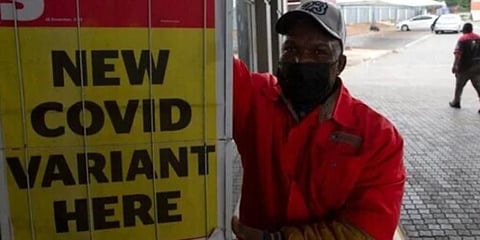

Omicron is the growing concern among the international community as the World Health Organization has said, inter alia, that the variant has a whopping 32 mutations in its spike protein. Studies claim that it may take weeks to judge its severity and warn against treating it as a mild variant. This necessitates devising strategies to contain this variant and in this context, the Government of India initiated the process of ensuring boosters to the frontline community, as also vaccine doses for children on an emergency mode.
The standard economic theory may be helpful to policymakers to the extent that agents actually behave as predicted. However, evidence continues to mount that people often violate the basic principles of economics. The aim of behavioural economics is to move the subject towards reality in a way that is useful for policymakers and researchers. Policymakers should provide freedom of choice to the people but at the same time design the environment in such a way that the subjects make the right decisions, especially to tackle communicable diseases like Omicron.
When people make a numerical estimate, they tend to use a number as a starting point (called an anchor) and make minor adjustments. When people have to assess the likelihood of risks, they estimate based on how readily examples come to mind. If they can easily think of examples, they perceive the risk as relatively high; if they can’t, they perceive the risk as relatively low. Thus, personal experience, recentness and media exposure impact our judgments. This reveals that anchoring and availability has a role in human preference. Thus the health agencies at the state level and local self-governments may focus on educating the public on the seriousness of getting affected by this variant through existing case studies, speeches of already affected patients and their families.
People tend to be too confident in their abilities and they are too optimistic about outcomes. For instance, people may underestimate the chances of getting Covid-19 as they are vaccinated or have already come in contact with the disease. People also generally dislike losses more than they like gains. Loss aversion prevents us from making changes that could be in our interest. Also how facts are stated about this disease can greatly affect how people interpret them.
The best example in this context is that a doctor can say “out of 100 patients who have had this infection, 90 are alive,” or she can say “out of 100 patients who have had this infection, 10 are dead”. Rephrasing the information can have a huge impact on whether the public chooses to undergo Covid-appropriate behaviour. Thus overconfidence, gains and losses and framing affects human attitude to follow the best practises for tackling this variant.
People have difficulty in resisting bad behaviour, even if they so desire. Self-control takes effort and practice. In this situation, people may prefer fewer choices that contradict economic theory. Also people tend to make choices that mirror the ones taken by others. Other people’s actions provide information about what’s best for you; conformity has social benefits. This necessitates an awareness campaign on Omicron to be led by leading medical practitioners, influential personalities, YouTubers, etc., as temptation and conformity assigns an important role in human preference on Covid-19 best practises.
Policymakers have control over the choice architecture that encompasses the details of the policy, communication strategy and how it presents the options. principles of good choice architecture are NUDGES: iNcentives, Understanding mappings, Defaults, Giving feedback, Expecting errors and Structuring complex choices. People tend to take the path that requires the least effort; some may decline to make any decisions at all and thus the selection of default choices are important for policymakers.
Make the default what is good for people and make them opt out, not opt in. A well-designed system anticipates that its users will make mistakes. For example, take the case of ATMs—people used to forget their cards but now the machines are designed to give it back prior to completing requests. Policymakers in the health sector should also design such policies to prevent mistakes from happening, and allow flexibility in the event one does happen, for effectively fighting this variant.
One way to reduce error is for a system to provide the public with health feedback when they are not following Covid-appropriate behaviour.
When facing complex decisions, people may benefit from the information about how the choices they make relate to the outcomes they experience. This may be described as mapping choice to welfare. An example is how doctors may explain various treatment options for this variant and their implications. Policymakers should make information about various options of this disease comprehensible by using language and numbers that people can readily understand and relate to. When people face a great number of options, they depend on simplifying strategies like elimination by aspects, reducing the set of possible options according to certain criteria, etc.
Policymakers can help by sorting choices into related groups, allowing people to eliminate sets of options or enabling the search over possible choices.
Certainly, policymakers should consider incentives when they design policies for tackling this disease. Policies should give the right people the right incentives. The best example is linking incentives and monetary benefits to the public who follow the health rules, undergo vaccination, wear masks properly, etc. Often, rules impose uniform limits on human behaviour. However, incentives that emerge from standard economics, if properly aligned with feedback mechanisms may do wonders for tackling this epidemic.
(Views expressed are personal)
(surjithkarthikeyan@gmail.com)